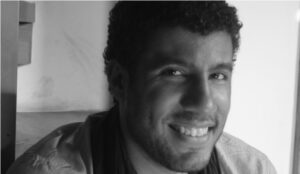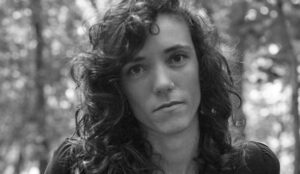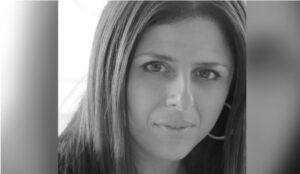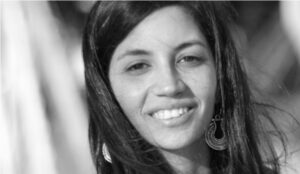The Africa Institute is pleased to announce the recipients of the Global Africa Translation Fellowship 2022 – 23. Grants in the range of $1,000 to $5,000 are offered annually to support the completion of translations of original works from the African continent and its diaspora, into Arabic and/or English. Selected works may be retranslations of old, classic texts, or previously untranslated works, collections of poetry, novel, prose, or critical theory. The project may be a work-in-progress, or a new project feasible for completion within the timeframe of the grant.
The awardees for the 2022 Global Africa Translation Fellowship are:
Hussein El Hajj, for the translation of author Salma Khalil’s unpublished book Where Will We Go in Winter? — an anthology of young Arabs’ personal reflections on their experiences of diaspora and exile since the ‘Arab Spring’ uprisings of 2011 — from English into Arabic.
Margaux Fitoussi, to translate Waiting for Omar Gatlato, written in French by Wassyla Tamzali and published in 1979, into English. Waiting for Omar Gatlato is an early sourcebook on Algerian and Tunisian experimental cinema from the end of the 1960s through the late 1970s. The monograph is split into two parts — “A Look at Algerian Cinema” and “A Fragmentary Introduction to Tunisian Cinema” — and includes film analysis, stills, shooting notes, production documentation, and interviews with individual filmmakers.
Nathalie Handal, for translation and editing of Récitatif au pays des ombres, Recitatif in the Country of Shadows from French (with some Creole) into English.
Salma Khalil, for the translation of Coptic-Egyptian author Shady Lewis’s third novel A Brief History of Genesis and East Cairo, published by Dar al-Ein in 2021, from Arabic into English.
To learn more about the Global Africa Translation Fellowship Program and the application process, visit here.

Hussein El Hajj is an Egyptian translator and editor who has produced numerous publications, including an Arabic poetry collection, Tuyuf / Spectres (Yadawia for handmade books, 2015), and the translations (from English into Arabic) of A User’s Guide to Demanding the Impossible by Gavin Grindon and John Jordan, (Yadawia for handmade books, 2018) and two online anthologies (2018) on alternative higher education in association with CILAS: On the Emergence of Pigeon Towers and a collection of collaborative student translations, Education as Translation.

Margaux Fitoussi is currently working on her Ph.D. at Columbia University, where she is studying “the shift in politics and political consciousness as reflected in visual culture in post-revolutionary Tunisia”. In addition to her Harvard Divinity School coursework, Fitoussi has studied Arabic, anthropology, and history with a North African focus — cross-registrations that allowed her to “play in the best way possible academically”.

Nathalie Handal is a poet, playwright, nonfiction, and literary travel writer. Handal is the editor of the groundbreaking classic The Poetry of Arab Women: A Contemporary Anthology, winner of the PEN Oakland Josephine Miles Book Award, and named one of the top 10 Feminist Books by The Guardian; and co-editor of the W.W. Norton landmark anthology Language for a New Century: Contemporary Poetry from the Middle East, Asia & Beyond, both Academy of American Poets bestsellers. She is the author of seven prize-winning collections, most recently Life in A Country Album, winner of the 2020 Palestine Book Award; and The Republics, winner of the Arab American Book Award. Handal’s work has been translated into over 15 languages. She is a professor at New York University-AD, and writes the literary travel column, The City and the Writer for Words without Borders.

Salma Khalil completed her Master of Science degree in cultural and social anthropology at the University of Amsterdam, and her career has been guided by her passion for knowledge production and sharing. She seeks to contribute to the production and sharing of knowledge on social equality and welfare, with a specific focus on knowledge gathered from the most impacted on the ground, as well as the use of knowledge in specific relation to policy, academic research, social and civil society work.
The Africa Institute is pleased to announce the recipients of the Global Africa Translation Fellowship 2022 – 23. Grants in the range of $1,000 to $5,000 are offered annually to support the completion of translations of original works from the African continent and its diaspora, into Arabic and/or English. Selected works may be retranslations of old, classic texts, or previously untranslated works, collections of poetry, novel, prose, or critical theory. The project may be a work-in-progress, or a new project feasible for completion within the timeframe of the grant.
The Africa Institute is pleased to announce the recipients of the Global Africa Translation Fellowship 2022 – 23. Grants in the range of $1,000 to $5,000 are offered annually to support the completion of translations of original works from the African continent and its diaspora, into Arabic and/or English. Selected works may be retranslations of old, classic texts, or previously untranslated works, collections of poetry, novel, prose, or critical theory. The project may be a work-in-progress, or a new project feasible for completion within the timeframe of the grant.
The awardees for the 2022 Global Africa Translation Fellowship are:
Hussein El Hajj, for the translation of author Salma Khalil’s unpublished book Where Will We Go in Winter? — an anthology of young Arabs’ personal reflections on their experiences of diaspora and exile since the ‘Arab Spring’ uprisings of 2011 — from English into Arabic.
Margaux Fitoussi, to translate Waiting for Omar Gatlato, written in French by Wassyla Tamzali and published in 1979, into English. Waiting for Omar Gatlato is an early sourcebook on Algerian and Tunisian experimental cinema from the end of the 1960s through the late 1970s. The monograph is split into two parts — “A Look at Algerian Cinema” and “A Fragmentary Introduction to Tunisian Cinema” — and includes film analysis, stills, shooting notes, production documentation, and interviews with individual filmmakers.
Nathalie Handal, for translation and editing of Récitatif au pays des ombres, Recitatif in the Country of Shadows from French (with some Creole) into English.
Salma Khalil, for the translation of Coptic-Egyptian author Shady Lewis’s third novel A Brief History of Genesis and East Cairo, published by Dar al-Ein in 2021, from Arabic into English.
To learn more about the Global Africa Translation Fellowship Program and the application process, visit here.

Hussein El Hajj is an Egyptian translator and editor who has produced numerous publications, including an Arabic poetry collection, Tuyuf / Spectres (Yadawia for handmade books, 2015), and the translations (from English into Arabic) of A User’s Guide to Demanding the Impossible by Gavin Grindon and John Jordan, (Yadawia for handmade books, 2018) and two online anthologies (2018) on alternative higher education in association with CILAS: On the Emergence of Pigeon Towers and a collection of collaborative student translations, Education as Translation.

Margaux Fitoussi is currently working on her Ph.D. at Columbia University, where she is studying “the shift in politics and political consciousness as reflected in visual culture in post-revolutionary Tunisia”. In addition to her Harvard Divinity School coursework, Fitoussi has studied Arabic, anthropology, and history with a North African focus — cross-registrations that allowed her to “play in the best way possible academically”.

Nathalie Handal is a poet, playwright, nonfiction, and literary travel writer. Handal is the editor of the groundbreaking classic The Poetry of Arab Women: A Contemporary Anthology, winner of the PEN Oakland Josephine Miles Book Award, and named one of the top 10 Feminist Books by The Guardian; and co-editor of the W.W. Norton landmark anthology Language for a New Century: Contemporary Poetry from the Middle East, Asia & Beyond, both Academy of American Poets bestsellers. She is the author of seven prize-winning collections, most recently Life in A Country Album, winner of the 2020 Palestine Book Award; and The Republics, winner of the Arab American Book Award. Handal’s work has been translated into over 15 languages. She is a professor at New York University-AD, and writes the literary travel column, The City and the Writer for Words without Borders.

Salma Khalil completed her Master of Science degree in cultural and social anthropology at the University of Amsterdam, and her career has been guided by her passion for knowledge production and sharing. She seeks to contribute to the production and sharing of knowledge on social equality and welfare, with a specific focus on knowledge gathered from the most impacted on the ground, as well as the use of knowledge in specific relation to policy, academic research, social and civil society work.
Subscribe to our mailing list and get the latest news from The Africa Institute